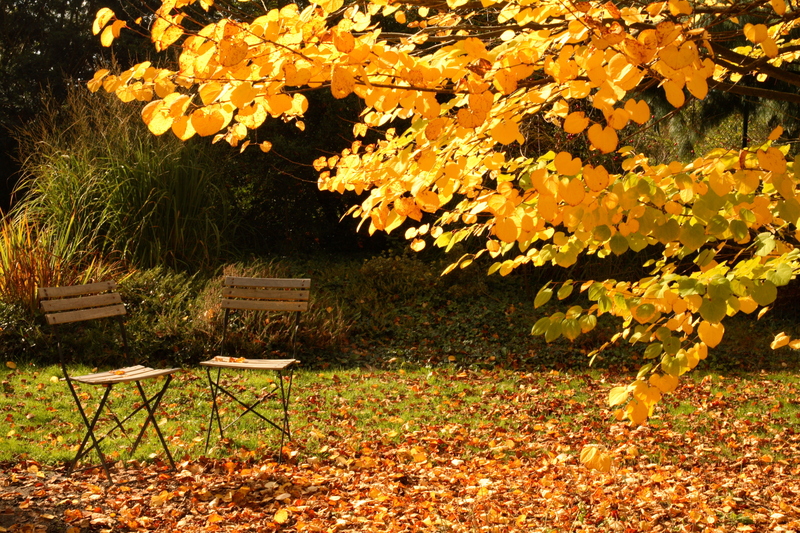Organic Waste Alchemy: Converting Trash to Soil Treasure
Posted on 10/06/2025
Organic Waste Alchemy: Converting Trash to Soil Treasure
Embracing the alchemy of organic waste is a movement sweeping across gardens, kitchens, and agricultural landscapes worldwide. Instead of letting kitchen scraps and garden clippings languish in landfills, eco-conscious individuals are turning this so-called "trash" into rich, earth-nourishing treasure. This guide dives into the art and science of transforming organic garbage into premium compost, illuminating the remarkable cycle that enriches soils, fosters sustainability, and closes the loop in our food systems.
The Environmental Case for Organic Waste Transformation
Each year, humanity discards billions of tons of organic waste -- food scraps, yard debris, and more. According to the United Nations Environment Programme, nearly half of global food produced is lost or wasted, much of which ends up in landfills where it emits methane, a potent greenhouse gas. By championing organic waste recycling, we can drastically reduce landfill contributions while producing an invaluable commodity: fertile compost that rejuvenates soil and sustains thriving ecosystems.
- Reduces waste in landfills and curbs greenhouse gas emissions.
- Returns vital nutrients to the earth--enriching soil structure and fertility.
- Supports local food systems by fostering healthier plant growth.
- Promotes circular economies and resource efficiency.

Understanding Organic Waste and Its Golden Potential
Not all "trash" is created equal. Organic waste includes any biodegradable material that once lived, such as:
- Vegetable and fruit peels
- Coffee grounds and tea bags
- Eggshells
- Grass clippings and leaves
- Wood chips and sawdust
- Non-dairy animal manure (for advanced composters)
Beneath this unassuming debris lies a wealth of nutrients waiting to be unlocked through the magic of composting, turning what's often overlooked into soil treasure.
How Does Organic Waste Alchemy Happen?
The Science Behind Composting
Composting is an age-old process powered by nature's tiniest workforce: microorganisms such as bacteria, fungi, and actinomycetes, as well as helpful invertebrates like earthworms. They steadily decompose organic matter into humus, a nutrient-rich, dark material that dramatically improves soil quality.
- Aerobic decomposition: The most common composting process, relying on oxygen-loving microbes.
- Vermicomposting: Using worms, mainly red wigglers, to accelerate organic waste conversion.
- Bokashi fermentation: An anaerobic (oxygen-free) method involving beneficial microbes to break down food scraps, including some cooked or fatty items.
The Alchemy Recipe: Brown and Green Ingredients
Crafting compost is as much art as science. The secret lies in balancing "browns" (carbon-rich materials) and "greens" (nitrogen-rich components):
- Browns: Dried leaves, straw, cardboard, shredded newspaper, wood chips (carbon sources)
- Greens: Vegetable scraps, grass clippings, coffee grounds, fresh plant material (nitrogen sources)
Aim for a ratio of roughly 3 parts brown to 1 part green. A proper mix ensures efficient decomposition, odor control, and ideal moisture levels for microbial activity.
Building the Ultimate Compost System
Choosing Your Composting Method
- Pile/Heap Composting: The simplest method, suitable for spacious gardens. Layer organic materials on the ground and let nature do the work.
- Compost Bins: Contained systems help retain heat and speed up decomposition. Available as DIY wooden boxes, recycled barrels, or store-bought tumblers.
- Vermicomposting Bins: Perfect for small spaces, using worms to process kitchen scraps rapidly and produce ultra-rich worm castings.
- Bokashi Buckets: A closed system, ideal for indoor use and accepting a wider variety of kitchen waste, including meat and dairy.
Steps to Composting Success
- Select your site: Choose a shaded, well-drained spot for your pile or bin.
- Add organic materials: Layer browns and greens, starting with coarse materials for airflow.
- Maintain moisture: The pile should be as damp as a wrung-out sponge.
- Aerate regularly: Turn the pile every 1-2 weeks to provide oxygen and speed breakdown.
- Monitor temperature: A well-balanced pile heats up, signaling active decomposition. Once the pile cools, compost is nearly finished.
Troubleshooting Common Composting Challenges
- Bad odors? Too many "greens" or lack of oxygen. Add browns and turn the pile.
- Slow decomposition? Pile may be too dry/cold or missing nitrogen. Add water or green materials and mix.
- Pests? Avoid meat, dairy, and oily foods. Use critter-proof bins if needed.
Advanced Compost: Turbocharging Organic Waste Alchemy
Vermicomposting: Harnessing Nature's Alchemists
Worm composting is a powerful method for urban dwellers and apartment gardeners. Specialized worms convert organic garbage into vermicast, a potent natural fertilizer loaded with plant-friendly microbes. Worm bins require minimal space, producing continuous harvests of both worm castings and nutrient-rich liquid ("worm tea")-- perfect for houseplants or gardens.
Hot Composting: Fast-Track to Soil Treasure
- Hot composting accelerates the organic waste alchemy by maintaining pile temperatures of 55-70?C (131-160?F), destroying weed seeds and pathogens.
- Frequent turning, appropriate particle size (chop materials), and the right moisture help achieve these conditions.
Bokashi: Fermenting Your Food Waste
This Japanese method uses a special mix of effective microorganisms (EM) to ferment food waste, including cooked scraps, bones, and dairy, which are often omitted from traditional composting. After fermentation, the material is buried in the soil for final decomposition, producing outstanding soil amendments and minimizing odors.
From Pile to Paradise: Using Your Compost
The finished product of this organic waste alchemy is dark, crumbly, and rich-smelling compost. Applying it to your garden, houseplants, or crop fields yields impressive benefits:
- Boosts soil fertility with essential macro and micronutrients.
- Improves soil structure--increasing aeration, drainage, and water-holding capacity.
- Encourages beneficial soil life like mycorrhizal fungi and helpful bacteria.
- Suppresses diseases and supports healthy plant growth organically.
- Reduces dependence on chemical fertilizers, resulting in safer food and healthier ecosystems.
Soil Treasure Everywhere: Real World Success Stories
Cities Turning Food Waste into Gold
Urban centers like San Francisco, Milan, and Seoul have piloted large-scale food waste collection and composting programs, transforming municipal organics into millions of tons of local compost annually. These initiatives dramatically cut landfill waste, improve air quality, and supply farmers and home gardeners with high-value soil amendments.
Backyard Alchemy: The Garden Revolution
In neighborhoods worldwide, home composting is gaining momentum. School gardens, community plots, and eco-minded businesses are closing the loop, cultivating vibrant soils and lush harvests -- all from what once piled up in trash cans. Simple changes in how we handle food scraps create ripple effects for community health, sustainable agriculture, and environmental resilience.
Organic Waste Alchemy and Sustainable Living
Turning trash into soil treasure is about more than gardening. It's a practical response to global concerns of food security, soil depletion, and climate change.
- Empowers circular economies by keeping valuable nutrients in local abundance.
- Minimizes resource extraction and landfill dependency.
- Promotes environmental literacy and a deeper understanding of our connection to natural cycles.
- Reduces household waste management costs, saving money while enriching gardens.
Expert Tips for Mastering Organic Waste Alchemy
- Chop or shred waste before composting--smaller pieces decompose far more rapidly.
- Mix optimally for oxygen flow--think of compost as a living organism needing to "breathe".
- Add compost boosters like finished compost, garden soil, or compost starter to introduce helpful microbes.
- Monitor moisture--too dry slows decomposition, too wet leads to odors. Aim for sponge-like dampness.
- Be patient--finished compost may take from a couple of months (hot compost) to a year (cool compost), but the payoff is immense.
- Educate and inspire others--share your compost journey with neighbors, schools, or local groups to multiply the movement.

Resources for Diving Deeper
- U.S. EPA: Composting at Home
- Master Composter Program
- Compost Research & Education Foundation
- Garden Organic (UK)
Conclusion: Join the Organic Waste Alchemy Revolution
The movement to convert organic trash into soil treasure represents both an opportunity and a responsibility. By reimagining waste as a resource, we can nurture the Earth, improve food systems, and build more sustainable communities--one compost pile at a time. Whether you're managing a city's food scraps, tending a backyard garden, or supporting community composting, every effort counts.
Begin your journey in organic waste alchemy today. Transform leftovers into abundance, and be a catalyst for a greener, more fertile world!
Latest Posts
Windbreaks and Barriers: Essential for Windy Gardens
Pet-Centric Garden Solutions for Vibrant Yards
Curate a Nature-Inspired Playground in Your Garden
Create a Serene Space with 5 Budget-Friendly Low Maintenance Ideas

